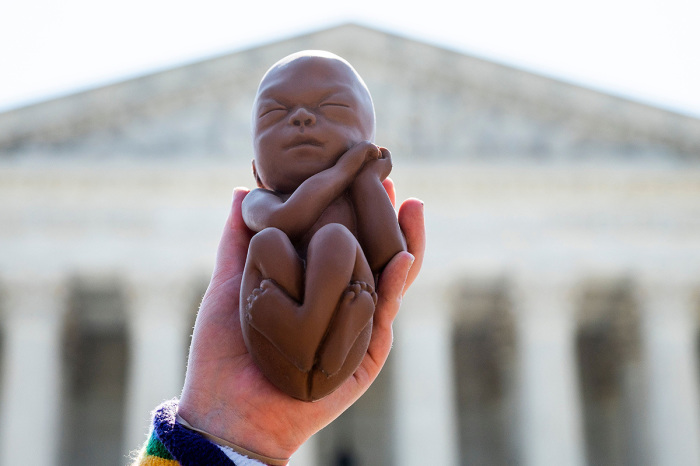Arizona lawmakers pass 15-week abortion ban as Supreme Court weigh's similar Mississippi law

Arizona lawmakers have passed a bill that, if enacted, will ban most abortions after 15 weeks into a pregnancy, similar to a Mississippi law that the U.S. Supreme Court is reviewing this year.
Known as Senate Bill 1164, the legislation was passed by the state House of Representatives on Thursday in a vote of 31 ayes to 26 nays, with three not voting. The legislation was approved by the state Senate last month.
Arizona Gov. Doug Ducey, a pro-life Republican who has signed other abortion restrictions during his administration, is expected to sign SB 1164 in the near future.
The bill would make it a class 6 felony for any physician to intentionally perform or attempt to perform an abortion that is not medically necessary “when the gestational age exceeds 15 weeks.”
Supporters of the legislation include the Center for Arizona Policy, which argued that the measure was necessary to protect developed unborn human life.
“Preborn babies at 15 weeks gestation have fully formed noses, eyelids, and lips, as well as developing hearts, kidneys, and other organs. They suck their thumbs, and they feel pain,” said Center for Arizona Policy President Cathi Herrod in a statement last month.
“At 15 weeks gestation, the preborn baby does flips, hiccups, and has regular sleep patterns, according to expert testimony. These babies deserve our protection; their mothers deserve the truth, and they are worthy of protection from the trauma, regret, and pain of abortion.”
Critics of the bill include the Arizona chapter of the American Civil Liberties Union, which called on Ducey to veto what they consider a violation of “bodily autonomy.”
“Decisions about if and when to become a parent or have more children should be made by individuals, with support from their doctor and loved ones as needed,” stated Jennifer Allen, executive director of the ACLU of Arizona.
“Taking options off the table for pregnant people — regardless of their reason for seeking an abortion — is an egregious attack on their bodily autonomy. We urge Governor Ducey to veto SB1164.”
The bill’s passage comes as the nation waits for the U.S. Supreme Court to rule on the constitutionality of Mississippi’s law restricting abortions after 15 weeks into a pregnancy.
Last December, the high court heard oral arguments in the case of Dobbs v. Jackson Women’s Health Organization, with pro-choice advocates saying the law is unconstitutional and pro-life advocates hoping it could alter abortion legal precedent that has equated abortion with a constitutional right.
Many believe the case could lead to the overturning or weakening of the controversial Supreme Court case Roe v. Wade, a 1973 decision prohibiting states from passing laws restricting abortion before viability.
If Roe v. Wade were overturned entirely, pro-choice advocates fear that old Arizona laws still on the books could be used to ban abortion completely in the state. According to the pro-choice research organization Guttmacher Institute, over two dozen states have laws on the books that could ban abortion entirely if Roe is overturned.
Several states have enacted abortion restrictions in recent years.
A law passed in Texas last year banning abortions once a heartbeat can be detected also faced legal challenges but has been in effect since last year. Instead of being enforced through government agencies, the law allows private citizens to sue abortion providers or others who assist in an illegal abortion for damages.
Earlier this month, the Idaho legislature approved a modification to the state’s abortion law to allow family members to sue abortion providers who violate the law. The bill awaits a signature from Republican Gov. Brad Little.





























